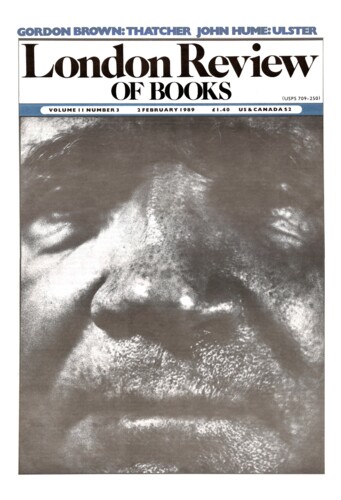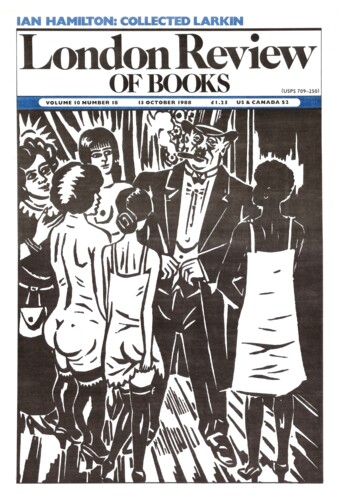Something of Importance
Philip Williamson, 2 February 1989
Publications about the Great War continue to proliferate, hardly needing additional stimulation from the 70th anniversary of the Armistice. The present books are just a few on the subject to appear during 1988, and despite publication dates close to 11 November only one of these seems to be a largely opportunistic production. The reasons for such persistent attention are plain. The war was a huge rupture in many areas of human experience. It caused the fall of empires, dynasties and governments, the transformation of many institutions, and the emergence of new states, regimes, parties and political issues. It was the first truly international war, which affected even neutral countries through their economies, and which with the rise of American and Japanese power precipitated the end of European supremacy. It left an aftermath of disrupted international and national economies, bringing deep economic depression and mass unemployment. It precipitated social revolutions in some countries, and almost everywhere an advance in the power of labour and intensification of class tension. It was a blow to cultural optimism, to all assumptions of rational and humane progress. But it was not just a ‘world-historical’ event or clash of great entities. It was also the first war both of mass armies and mass mobilisation of civilian populations in war production. It was a war of an immense number of extraordinarily intense personal experiences – the terrors of combat and the particular horrors of trench warfare, proximity to suffering and death, bereavement, material deprivation, new work experiences and new social expectations. In one way or another the Great War affected the lives of more individuals more directly than any previous episode. It was stamped deeply upon ‘modern memory’ – not just in literary culture as described by Paul Fussell, but in family and communal memories and in the most solemn national commemorations.’


